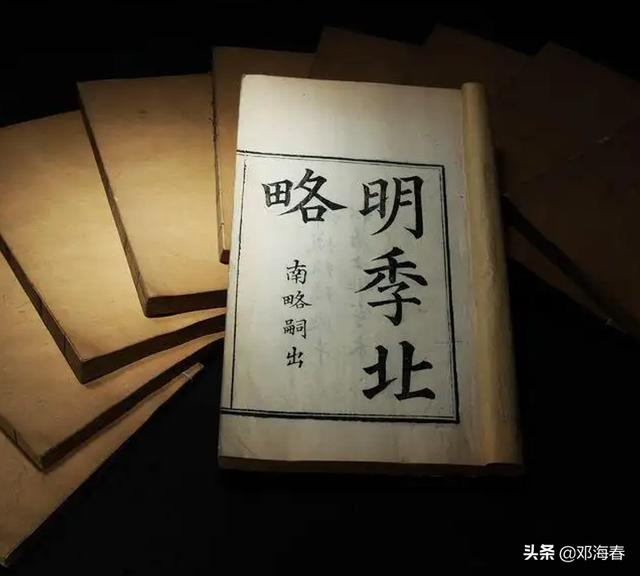日文舶来词太多了(这些词牌的英译名哭了)

读宋词时,你可曾被一个个绝美的词牌所打动?你知道“菩萨蛮”是什么意思?“虞美人”又是何人?“雨霖铃”为何如此凄婉?“踏莎行”到底该怎么念?
阿研就带大家一起了解一下词牌的含义以及宋词的英译之美。
词牌,也称为词格,是填词用的曲调名,它规定了词的格式。词最初是伴曲而唱的,曲子都有一定的旋律、节奏,而这些旋律、节奏的总和就是词调。因此词牌在英语中对应的单词是tune(曲调,曲子)。
词牌名或来自于民间的曲调,或摘取词中字句,多达上千个。虽然我们常见的词牌名多为三字,但其长短从两字到七字(如“凤凰台上忆吹箫”)不等。
这里,阿研选取了十个绝美的词牌,与大家分享它们背后的故事,并附上其词中名篇。
浣溪沙
浣溪沙,原为唐教坊曲名,因春秋时越国美女西施浣纱而得名。“浣”指洗涤、漂洗;“沙”古通“纱”。
浣溪沙正体双调四十二字,上片三句三平韵,下片三句两平韵。此调音节明快,句式整齐,易于上口,为婉约派与豪放派多数词人所常用。英文被译作“Silk-Washing Stream”。
浣溪沙
[宋]秦观
漠漠轻寒上小楼,
晓阴无赖似穷秋。
淡烟流水画屏幽。
自在飞花轻似梦,
无边丝雨细如愁。
宝帘闲挂小银钩。
Silk-Washing Stream
In light pervading cold I mount the little tower,
What can I do with an autumn-like vernal hour?
I see on painted screen but mist-veiled running stream.
The carefree failing petals fly as light as dream;
The boundless drizzling rain resembles a tearful look.
The broidered curtain hangs idly on silver hook.
(许渊冲译)
vernal 青春的;温柔的;春季的
petal 花瓣
hook 钩,铁钩;
如梦令
如梦令,又名“忆仙姿”,是五代后唐庄宗李存勖的自度曲,因嫌其名不雅,遂取尾句“如梦,如梦,残月落花烟重”中的“如梦”改名为“如梦令”。
如梦令单调三十三字,七句五仄一叠韵。此调一般用以抒情,自苏轼用以游戏和表旷达之情后,亦有用以言志与写景者。英文被译作“Like a Dream”。
如梦令
[宋]李清照
昨夜雨疏风骤,浓睡不消残酒。
试问卷帘人,却道海棠依旧。
知否,知否?应是绿肥红瘦。
Like A Dream
Last night the wind was strong and rain was fine,
Sound sleep did not dispel the taste of wine.
l ask the maid who’s rolling up the screen.
“The same crad-apple tree,”she says, “is seen.”
“But don’t you know,
Oh, don’t you know,
The red should languish and the green must grow.”
(许渊冲译)
dispel 驱逐;消除
languish 憔悴;惹人怜爱的感伤模样[倦态等]
江城子
江城子,又名“村意远”、“江神子”、“水晶帘”,源自于唐著词(唐代的酒令)。晚唐,“江城子”在酒筵上流行,经过文人的加工,就成为一首小令的词调。起初为单调,至北宋苏东坡时变为双调。英译为“A Riverside Town”(许渊冲版本)。
江城子·乙卯正月二十日夜记梦
[宋]苏轼
十年生死两茫茫。不思量。自难忘。千里孤坟,无处话凄凉。纵使相逢应不识,尘满面,鬓如霜。
夜来幽梦忽还乡。小轩窗。正梳妆。相顾无言,惟有泪千行。料得年年肠断处,明月夜,短松冈。
A Dream
to the Tune of Jiangchengzi
Ten years have we been parted:
The living and the dead——
Hearing no news,
Not thinking
And yet forgetting nothing!
I cannot come to your grave a thousand miles away
To converse with you and whisper my longing;
And even if we did meet
How would you greet
My weathered face, my hair a frosty white?
Last night
I dreamed I had suddenly returned to our old home
And saw you sitting there before the familiar dressing table,
We looked at each other in silence,
With misty eyes beneath the candle light.
May we year after year
In heartbreak meet,
On the pine-crest,
In the moonlight!
(林语堂译,摘自《苏东坡传》)
longing 渴望,热望
weathered 风化的
念奴娇
“念奴”是唐朝天宝年间的著名歌女,深受玄宗赞誉,称其“每执行当席,声出朝霞之上,邠二十五郎吹管也盖不过其歌喉”,又说“此女妖丽,眼色媚人”,使之艳名远播。苏轼《念奴娇·赤壁怀古》流传千古,首句“大江东去”,末句“一樽还酹江月”,故“念奴娇”又名“大江东去”或“酹江月”。
此调以苏轼《念奴娇·中秋》为正体,双调一百字,前片四十九字,后片五十一字,各十句四仄韵。许渊冲将其英译为“Charm of a Maiden Singer”。
念奴娇·赤壁怀古
[宋]苏轼
大江东去,浪淘尽,千古风流人物。
故垒西边,人道是,三国周郎赤壁。
乱石穿空,惊涛拍岸,卷起千堆雪。
江山如画,一时多少豪杰。
遥想公瑾当年,小乔初嫁了,雄姿英发。
羽扇纶巾,谈笑间,樯橹灰飞烟灭。
故国神游,多情应笑我,早生华发。
Charm of a Maiden Singer
Memories of the Past at Red Cliff
The endless river eastward flows;
With its huge waves are gone all those
Gallant heroes of bygone years.
West of the ancient fortress appears
Red Cliff where General Zhou Yu won his early fame
When the Three Kingdoms were in flame.
Jugged rocks tower in the air
And swashing waves beat on the shore,
Rolling up a thousand heaps of snow.
To match the hills and the river so fair,
How many heroes brave of yore
Made a great show!
I fancy General Zhou Yu at the height
Of his success, with a plume fan in hand,
In a silk hood, so brave and bright,
Laughing and jesting with his bride so fair,
While enemy ships were destroyed as planned
Like castles in the air.
Should their souls revisit this land,
Sentimental, his bride would laugh to say:
Younger than they, I have my hair turned grey.
Life is like a passing dream.
O Moon, I drink to you who saw them on the stream.
(许渊冲译)
gallant 勇敢的;壮丽的
fortress 堡垒,要塞
Jugged 锯齿形的
yore 往昔,昔时
plume 羽毛
fan 扇子
hood 兜帽;头巾
jest 玩笑;戏谑
sentimental 多愁善感的
虞美人
虞美人,唐代教坊曲,始词见于敦煌曲子词。关于“虞美人”名称的来源有多种说法,流传最广的便是源自秦末虞姬,即项羽之姬妾,常随侍军中。汉兵围项羽于垓下,羽夜起饮帐中,悲歌慷慨;虞姬以歌和之,拔剑自刎。
此调以李煜词为正体,双调五十六字,前后段各四句,两仄韵、两平韵。英译通常为“The Beautiful Lady Yu”。
虞美人
[唐]李煜
春花秋月何时了?往事知多少。小楼昨夜又东风,故国不堪回首月明中。
雕栏玉砌应犹在,只是朱颜改。问君能有几多愁?恰似一江春水向东流。
To the Tune of Yu Mei Ren
There is no end to moonlit autumns or flowery springs,
And I have known so very many things.
From my turret the wind was in the east again last night.
A lost land was too much to bear:
I turned from the moonlight.
The cavern rail and jade work wall are as they were before:
Those rosy cheeks alone are there no more.
Tell me, what is the uttermost extent of pain, you say?
Mine is a river swollen in spring and welling east away.
(杨宪益、戴乃迭译)
turret 塔楼,角楼
rail 围栏
rosy 玫瑰色的
uttermost 极端,最大限度
沁园春
“沁园”,本是东汉明帝刘庄第五个女儿沁水公主的田园,简称“沁园”。传说她是一位冷面美人,性格雅静、贤寂、善良、文弱,沁园作为公主的陪嫁被建成,后来用于指代公主之园。
此调以苏轼词《沁园春·孤馆灯青》为正体,双调一百十四字,前段十三句四平韵,后段十二句五平韵。其英译为“Spring in a Pleasure Garden”。
沁园春·雪
[当代]毛泽东
北国风光,千里冰封,万里雪飘。
望长城内外,惟余莽莽;大河上下,顿失滔滔。
山舞银蛇,原驰蜡象,欲与天公试比高。
须晴日,看红装素裹,分外妖娆。
江山如此多娇,引无数英雄竞折腰。
惜秦皇汉武,略输文采;唐宗宋祖,稍逊风骚。
一代天骄,成吉思汗,只识弯弓射大雕。
俱往矣,数风流人物,还看今朝。
Spring in a Pleasure Garden
See what the northern countries show:
Hundreds of leagues ice-bound go;
Thousands of leagues flies snow.
Behold! Within and without the Great wall
The boundless land is clad in white,
And up and down the Yellow River, all
The endless waves are lost to sight.
Mountains like silver serpents dancing,
Highlands like waxy elephants advancing,
All try to match the sky in height.
Wait till the day is fine
And see the fair bask in sparkling sunshine,
What an enchanting sight!
Our motherland so rich in beauty
Has made countless heroes vie to pay
But alas! Qin Huang and Han Wu
In culture not well bred,
And Tang Zong and Song Zu
In letters not wide read.
And Genghis Khan, proud son of Heaven for a day
Knew only shooting eagles by bending his bows.
They have all passed away;
Brilliant heroes are those
Whom we will see today!
(许渊冲译)
clad 覆盖的
serpent 蛇;狡猾的人
waxy 像蜡的;蜡色的
vie 竞争
雨霖铃
唐段安节《乐府杂录》云:“《雨霖铃》者,因唐明皇驾回至骆谷,闻雨淋銮铃,因令张野狐撰为曲名。”安史之乱后,唐玄宗在奔蜀途中处死了杨贵妃。于栈道雨中,闻铃音与山相应,上既悼念贵妃,采其声为《雨霖铃》曲,以寄恨焉。
雨霖铃,原唐教坊曲,后用作词调,始见于宋柳永《乐章集》。以柳永《雨霖铃·寒蝉凄切》为正体,双调一百三字,前段十句五仄韵,后段九句五仄韵。英文译作“Bells Ringing in the Rain”。
雨霖铃
[宋]柳永
寒蝉凄切,对长亭晚,骤雨初歇。
都门帐饮无绪,留恋处,兰舟催发。
执手相看泪眼,竟无语凝噎。
念去去,千里烟波,暮霭沉沉楚天阔。
多情自古伤离别,更那堪冷落清秋节!
今宵酒醒何处?杨柳岸,晓风残月。
此去经年,应是良辰好景虚设。
便纵有千种风情,更与何人说?
Bells Ringing in the Rain
Cicadas chill
And drearily shrill ,
We stand face to face at an evening hour
Before the pavilion, after a sudden shower.
At the city gate
Where we’re lingering late,
But the boat is waiting for me to depart.
Hand in hand, we gaze at each other’s tearful eyes
And burst into sobs with words congealed on our lips.
I’ll go my way
Far, far away
On miles and miles of misty waves where sail the ships,
Evening clouds hang low in boundless Southern skies.
Parting lovers would grieve as of old.
How could I stand this clear autumn day so cold!
Where shall I be found at day’s early break
From wine awake?
Moored by a riverbank planted with willow trees
Beneath the waning moon and in the morning breeze.
I’ll be gone for a year.
In vain would good times and fine scenes appear!
However gallant I am on my part,
To whom can I lay bare my heart?
(许渊冲译)
cicada 蝉
drearily 沉寂地,厌倦地
congeal 使凝结,冻结
moored 停泊
菩萨蛮
菩萨蛮,本唐教坊曲。唐苏鹗《杜阳杂编》云:“大中初,女蛮国入贡,危髻金冠,缨络被体,号菩萨队。当时倡优遂制《菩萨蛮》曲,文士亦往往声其词。”此曲来自女蛮国(唐朝时的小国之一),国人危髻金冠,缨络被体,故谓之菩萨蛮。
此调为双调小令,以五七言组成,四十四字。用韵两句一换,凡四易韵,平仄递转,以繁音促节表现深沉而起伏的情感,历来名作极多。许渊冲将其译为“Buddhist Dancers”。
菩萨蛮
[唐]李白
平林漠漠烟如织,寒山一带伤心碧。暝色入高楼,有人楼上愁。
玉阶空伫立,宿鸟归飞急。何处是归程,长亭更短亭。
Pu Sa Man
A flat-top forest stretches far in embroidered mist;
A cluster of mountains cool is tinged with heartbreak blue.
The mansion in creeping dusk is clad,
Someone up there is sad.
On marble steps I stand forlorn
Birds fly hurriedly by back to roost.
Where, pray, is the way home?
Along a string of wayside pavilions I roam.
(龚景浩译)
forlorn 渺茫的;绝望的;孤立无助的
roam 漫游;漫步
鹊桥仙
鹊桥仙源自古时关于牛郎织女“鹊桥相会”的神话,汉末应劭《风俗通》中已有记载:“织女七夕渡河,使鹊为桥。”自“迢迢牵牛星,皎皎河汉女”以来,历代诗人以咏牛郎织女相会事数千篇,故逐渐演变为曲名。
此调以欧阳修《鹊桥仙·月波清霁》为正体,双调五十六字,前后段各五句、两仄韵。英译为“Immortals at the Magpie Bridge”。
鹊桥仙
[宋]秦观
纤云弄巧,飞星传恨,银汉迢迢暗度。
金风玉露一相逢,便胜却、人间无数。
柔情似水,佳期如梦,忍顾鹊桥归路。
两情若是久长时,又岂在、朝朝暮暮。
Immortals at the Magpie Bridge
Clouds float like works of art;
Stars shoot with grief at heart.
Across the Milky Way the Cowherd meets the Maid
When Autumn’s Golden wind embraces Dew of Jade,
All the love scenes on earth,however many, fade.
This tender love flows like a stream;
Their happy date seems but a dream.
How can they bear a separate homeward way?
If love between both sides can last for aye,
Why need they stay together night and day?
(许渊冲 译)
一剪梅
在宋代,人们称一枝为一剪,“一剪梅”就是一枝梅花。古时候,相隔两地的人往往通过赠送对方一枝梅花来表达相思。词牌“一剪梅”,即是取此意而生。
此调以周邦彦《一剪梅·一剪梅花万样娇》为正体,双调六十字,前后段各六句、三平韵。英译为“A Twig of Mume Blossoms”。
一剪梅
[宋]李清照
红藕香残玉簟秋。轻解罗裳,独上兰舟。云中谁寄锦书来,雁字回时,月满西楼。
花自飘零水自流。一种相思,两处闲愁。此情无计可消除,才下眉头,却上心头。
ATwigofMumeBlossoms
Fragrant pink lotus fade; autumn chills mat of jade.
My silk robe doffed, I float.
Alone in orchid boat.
Who in the cloud would bring me letters in brocade?
When swans come back in flight,
My bower is steeped in moonlight.
As fallen flowers drift and water runs its way,
One longing overflows
Two places with same woes.
Such sorrow can by no means be driven away;
From eyebrows kept apart,
Again it gnaws my heart.
(许渊冲 译)
twig 细枝,嫩枝
mume 果梅;梅子
mat 席子,垫子
robe 长袍;睡袍
doff 脱去
brocade 凸花纹织物,锦缎
bower 凉亭;闺房
woe 悲哀;悲伤
gnaw 侵蚀;使苦恼,折磨
,免责声明:本文仅代表文章作者的个人观点,与本站无关。其原创性、真实性以及文中陈述文字和内容未经本站证实,对本文以及其中全部或者部分内容文字的真实性、完整性和原创性本站不作任何保证或承诺,请读者仅作参考,并自行核实相关内容。文章投诉邮箱:anhduc.ph@yahoo.com






